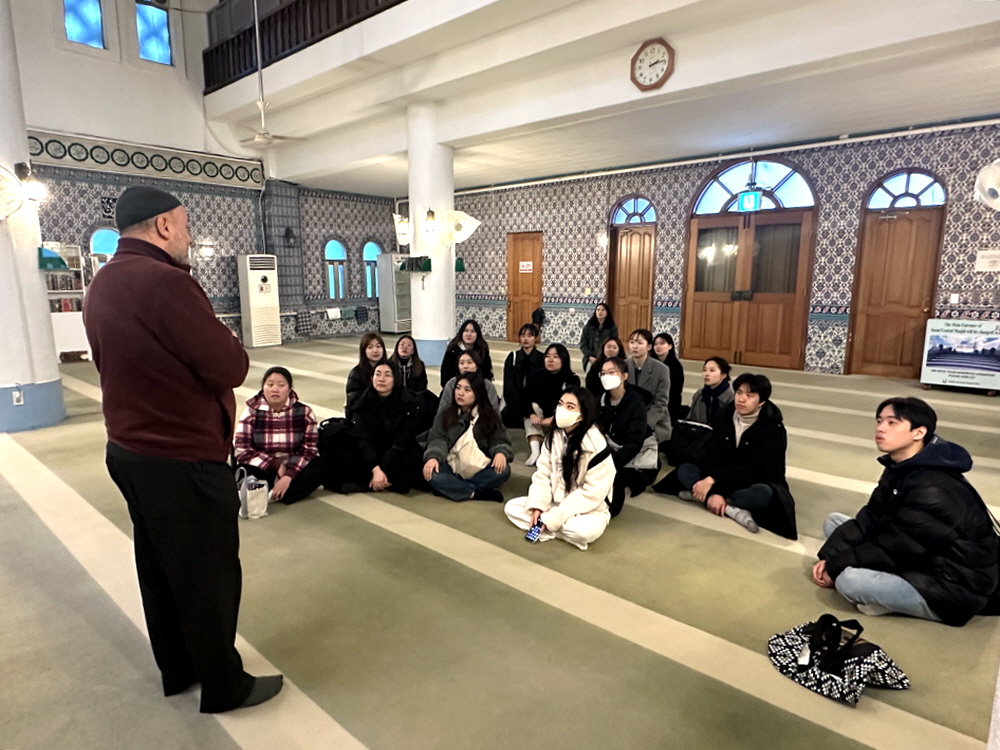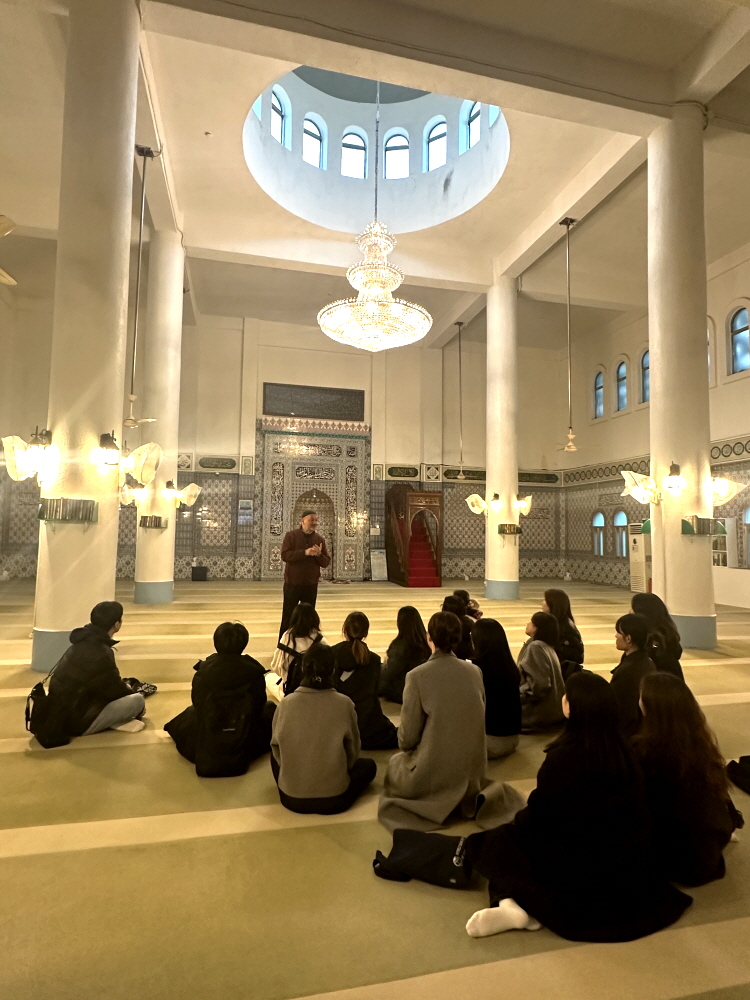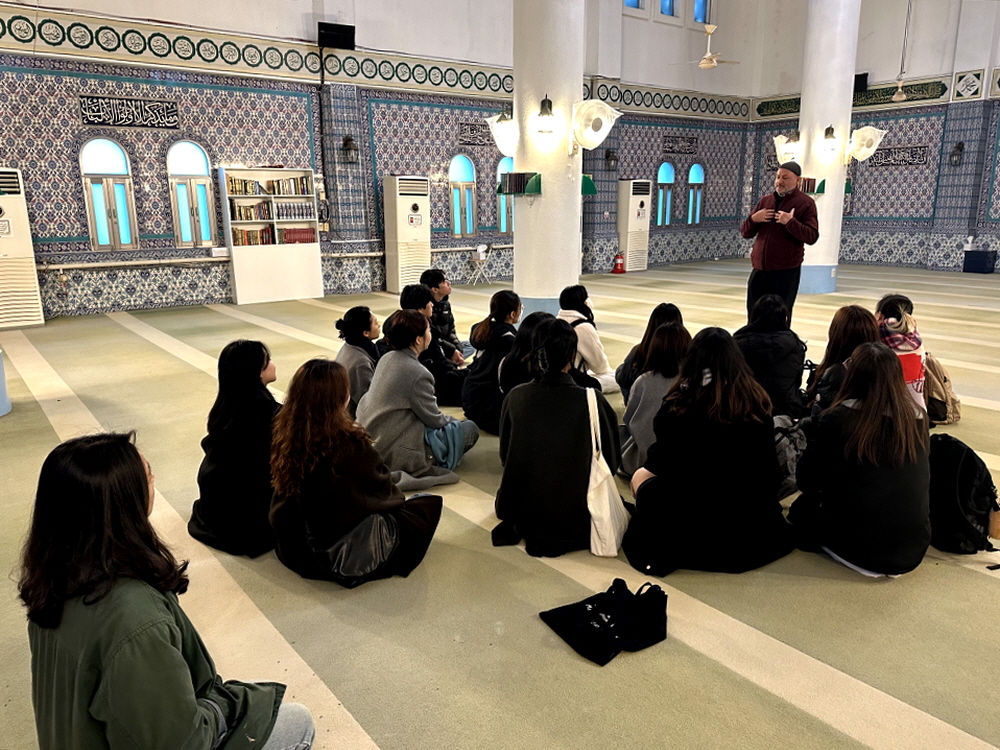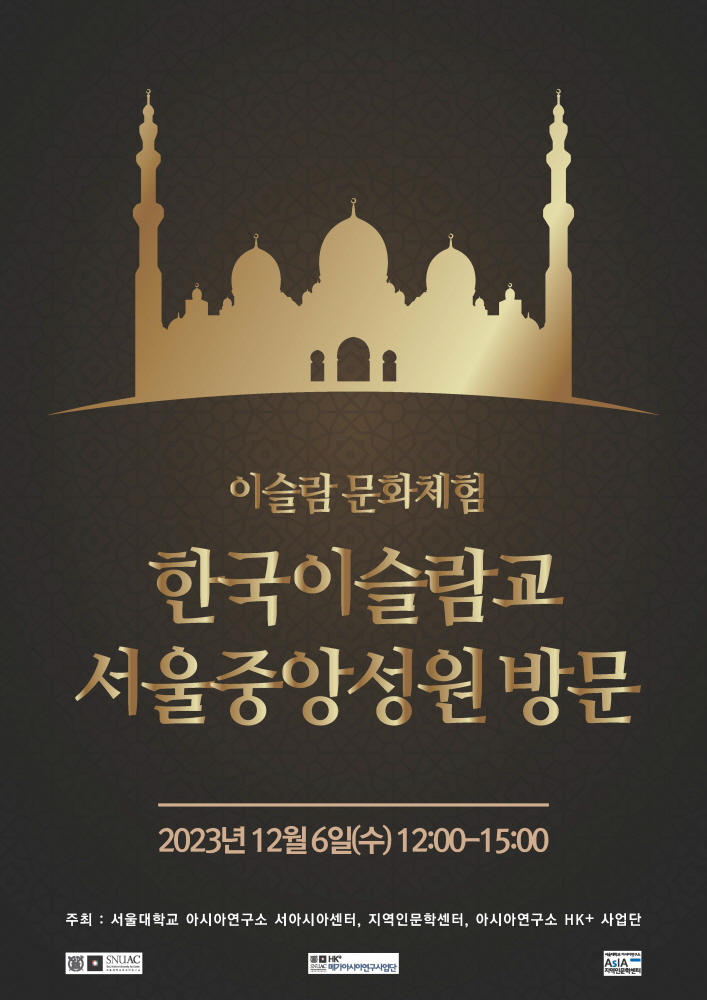[News] West Asia Center and AsIA Humanities Dissemination Center Offer an Islam Culture Experience
AsIA Humanities Dissemination Center and West Asia Center offered an Islam culture experience for students, visiting the Seoul Central Mosque in Hannam-dong, on December 6th, 2023. Other than the staff members of the West Asia Center at SNUAC, the research interns of SNUAC, students from Yonsei Univ. who are taking a class on Islam culture, students from Sookmyung Women’s Univ., and Prof. Saerom Han of Sookmyung Women’s Univ. joined the visit.
Before visiting the mosque, the participants experience Arab food and culture at Arabesque, a Halal restaurant. Afterward, they visited Islam-related shops, Halal grocery stores, and restaurants, exploring the Islam-related places near Hannam-dong.
Imam Jang Huseyin of the Seoul Central Mosque, from Turkiye, briefly explained what Islam and Muslims were, and introduced the Islamic way of worship and the structure of the mosque. While many people think of Islam as the religion of Arabs and the Middle East, the number of Muslims shows that the top five countries with Muslims are not Arabic countries. Islam is a total way of life so becoming a Muslim means more than converting to a religion. By maintaining a lifestyle following the Quran, Muslims must take responsibility for their choice. The Muslims’ duties include abstinence from alcohol, consumption of Halal food, fasting during Ramadan, one pilgrimage in a lifetime, five worships a day, and prohibition of idolatry.
Since the Quran indicates five times of worshipping a day, Islam worshipping is fused into daily Muslim life. In Islamic countries, the Azan, which notifies the worship times, rings five times a day from mosques. Muslims must pray in the direction of the Kaaba in Mecca, no matter where they are, following the sound of Azan.
Men must attend the mosque for joint worshipping on Fridays. Before participating in the worship at a mosque, they must conduct Wudu, which is cleansing of the body.
The mosques have separate spaces for prayers for men and women. It is because due to the nature of Islam worships where all worshippers pray while bowing with their shoulders pressed side to side, the presence of the opposite sex may become a disturbance. The visit was concluded with a Q&A session for students to ask their questions about Islam culture and the mosque.




